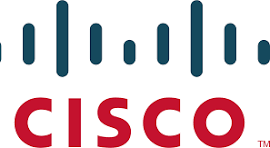
In today’s rapidly advancing digital world, computer science has become one of the most important fields of study. It is not only about learning how to use technology but also about understanding how it works, how to improve it, and how to solve real-world problems using it. Computer science gives individuals the tools to innovate, communicate, and adapt to a society where technology is central to nearly every aspect of life. Key components of computer science—such as artificial intelligence, programming, and critical thinking—play a vital role in shaping the future and preparing students for success.
One of the most transformative areas of computer science is artificial intelligence (AI). AI focuses on creating machines that can learn, reason, and make decisions. From virtual assistants and self-driving cars to medical diagnosis and environmental solutions, AI is already changing the way we live and work. Learning about AI helps students understand its potential benefits, such as improving efficiency and solving global challenges, as well as its ethical concerns, like fairness and privacy. By studying AI, learners are better prepared to engage with these technologies responsibly and creatively.
Another essential component of computer science is programming. Programming is the process of writing instructions that computers can follow to perform tasks. It is often described as the language of the future, because it allows people to design apps, create websites, build robots, and analyze large sets of data. Beyond technical skills, programming teaches persistence, problem-solving, and logical thinking. Students who learn to code are not only preparing for careers in technology but are also equipping themselves with versatile skills that apply across many professions.
Equally important is critical thinking, which lies at the heart of computer science. Critical thinking involves analyzing problems, questioning assumptions, and designing efficient solutions. When students work on a computer science project, they must break down complex issues into smaller steps, test different approaches, and evaluate outcomes. These skills go far beyond computers—they are life skills that support decision-making, creativity, and adaptability in any field. Critical thinking ensures that learners are not just passive users of technology but active problem-solvers and innovators.
In conclusion, learning computer science is essential in the modern world because it develops knowledge and skills that extend into nearly every part of life. Through studying artificial intelligence, students explore the future of technology and its role in society. By practicing programming, they learn the language of innovation and creation. Through critical thinking, they become capable of tackling complex challenges with confidence. Altogether, computer science empowers individuals to thrive in a digital age and contribute meaningfully to the world.




CS means more than just Computer Science